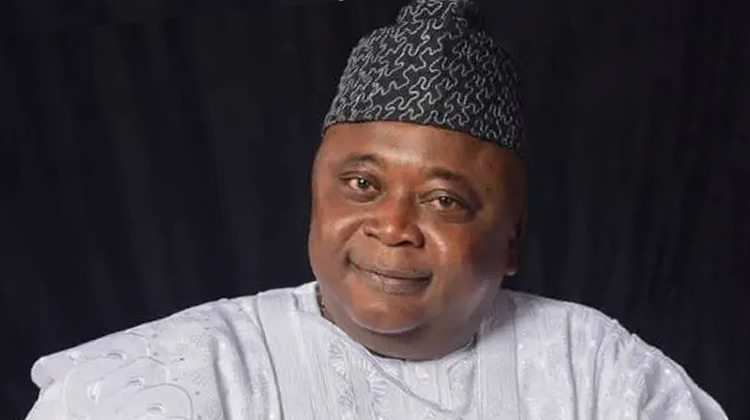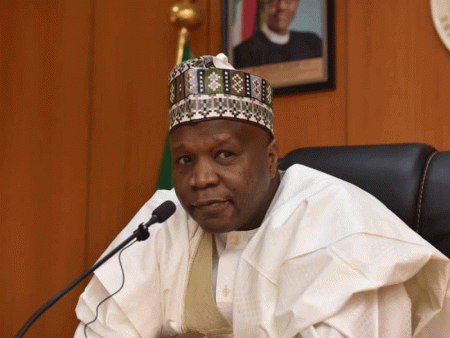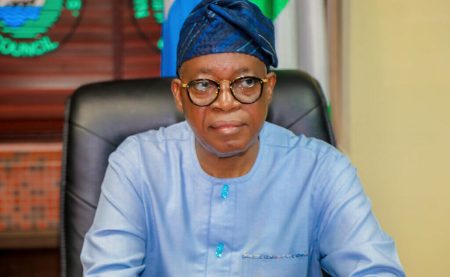The political landscape of Ogun State is currently embroiled in a contentious dispute between Governor Dapo Abiodun and his gubernatorial opponent from the 2023 elections, Oladipupo Adebutu, over a land use and amenities charge levied on Adebutu’s properties. The controversy centers around a N72 million charge for which a seven-day ultimatum notice was served on Adebutu’s properties located in Ode Remo. Adebutu, through his media representative, Afolabi Orekoya, vehemently denounced the notice, characterizing it as an act of political intimidation, harassment, and a blatant disregard for the ongoing court proceedings related to the charges.
Adebutu maintains that the matter of the land use and amenity charges has been a subject of litigation since 2018. He cites two specific cases: HCS/275/2018, scheduled for hearing in October 2025, and HCS/409/2024, which is yet to be assigned a court date. Both cases contest the charges levied by the Ogun State Ministry of Finance. He argues that the government’s attempt to enforce payment while the matter is sub judice constitutes contempt of court and a violation of the judicial process. Furthermore, Adebutu asserts that the Ministry of Finance acted improperly by unilaterally imposing the charges without a proper assessment of the property, as mandated by the relevant state laws.
The crux of Adebutu’s argument revolves around the due process, or lack thereof, in the imposition of the charges. He claims the notice was simply affixed to his property without following the established legal procedures, hence the ongoing litigation. He condemned the action as a reckless abuse of power and accused the Abiodun administration of weaponizing governmental agencies against political rivals. Adebutu urged the public to recognize this action as an intimidation tactic and to stand firm against what he perceives as tyrannical behavior. He emphasized that a thriving democracy necessitates the protection of dissenting voices and criticized the government for allegedly attempting to silence opposition through harassment and illicit enforcement actions. He appealed to the state government to redirect its focus towards improving governance, infrastructure, and public services, rather than engaging in political vendettas.
Conversely, Governor Abiodun, through his Special Adviser on Information and Strategy, Kayode Akinmade, dismissed Adebutu’s allegations. Akinmade argued that land use charges are a statutory requirement nationwide, serving as a crucial revenue stream for government operations, and therefore, the charges against Adebutu’s properties are not politically motivated. He pointed to similar charges levied against other entities, such as Rock City FM, to underscore the universality of the charge and to refute the claim of targeted harassment. Akinmade accused Adebutu and his organization of politicizing a standard procedure, suggesting they are devoid of substantial policy arguments and resorting to political theatrics. He reiterated that the charges are unrelated to party affiliation and lack any political undertones. He framed the notice as a routine procedure for addressing payment defaults on land use charges, applicable to all property owners.
Akinmade further challenged the notion of litigating against a statutory government levy. He maintained that the appropriate recourse for contesting the charges is not through the courts, but rather through direct engagement with the Ministry of Finance. He implied that Adebutu’s legal action is a misdirected effort and that a simpler, administrative solution is available. This position contrasts sharply with Adebutu’s claim that legal action was necessary due to the lack of due process and the unilateral nature of the imposed charges. The differing perspectives on the appropriate channel for resolving the dispute further highlight the escalating tension between the two political figures.
The clash between Adebutu and Governor Abiodun exemplifies the broader political dynamics in Ogun State. It underscores the friction between the ruling administration and the opposition, with accusations of political maneuvering and abuse of power being traded. The dispute over the land use charges, ostensibly a routine administrative matter, has become a proxy battle in the larger political contest. The differing interpretations of the legality and motivation behind the charges highlight the deep divisions and mistrust between the two camps. The ongoing legal battles and public pronouncements suggest that this controversy is likely to persist, serving as a focal point in the ongoing political struggle within Ogun State.













